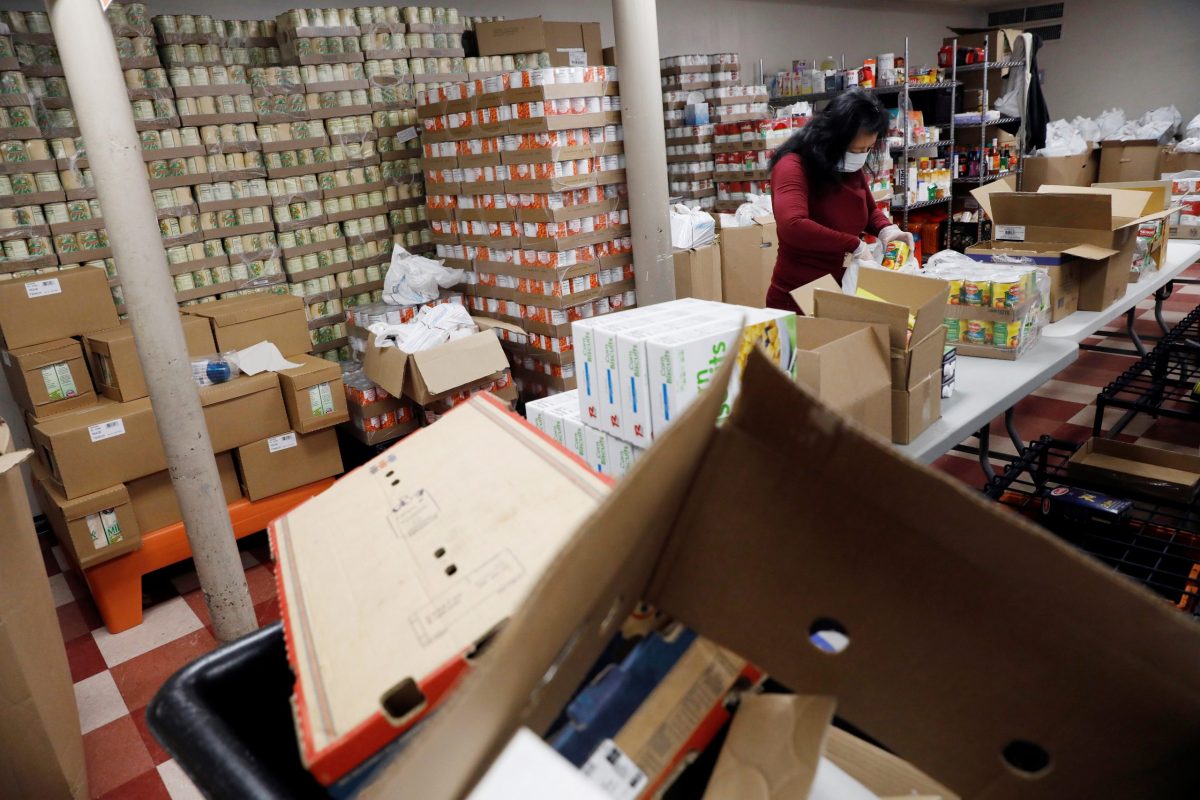The city’s emergency food assistance programs were created and designed for all New Yorkers, officials stressed in a virtual roundtable on Monday, and they will not require verification of a recipient’s immigration status.
“This [topic] is one that is clearly so essential and so critical in making sure that we are not leaving any New Yorker behind in terms of food, food insecurity, and hunger,” said Bitta Mostofi, commissioner for the Mayor’s Office of Immigrant Affairs. “It is really important to know … services available to New Yorkers regardless of status.”
Mostofi hosted the third virtual roundtable with Kathryn Garcia, the newly-appointed COVID-19 food czar commissioner and Gary Jenkins, the Human Resources Administration’s first deputy commissioner to detail the emergency food services that are available to city dwellers despite their citizenship status amid the ongoing coronavirus pandemic.
“It is so critical that folks are trying to access these services and our jobs are to try to assist you,” Mostofi said. “And if you are not eligible we will tell you and let you know what you are eligible for.”
The city-operated Emergency Food Assistance Program currently funds 500 food pantries and soup kitchens across the five boroughs, all of which Jenkins said do not require any sort of documentation to be served.
“There is no type of verification that will be asked of anyone who is visiting those food pantries or soup kitchens,” Jenkins said. “We will give you the food that is needed for those particular household members. Again, we ask for no verification, no documentation.”
In the near future, some 20,000 immigrant families — who were excluded from the federal stimulus package — will receive one-time emergency financial relief, Mostofi said, made possible by a $20 million grant issued to the city by George Soros’ nonprofit, the Open Society Foundations, and will be funneled through dozens of community-based organizations.
“The Mayor and Open Society Foundations have been working to distribute to about 30 or so organizations who have been identified and who will be beginning their work very soon,” Mostofi said.
Though, Mostofi stressed that the need for support far exceeds 20,000 families and therefore officials need to continue advocating for relief for undocumented workers at the federal level.
“The need is tremendous,” Mostofi said, “and so that’s why it’s so critical that we continue to work on advocacy at the state and federal levels to ensure that New Yorkers regardless of status are not left out of the protections in the stimulus legislation that passes in the future.”
Additionally, Jenkins noted that while only citizens and green-card holders are eligible for benefits through the federal Supplemental Nutrition Assistance Program — undocumented immigrants may be able to gain access to the food assistance if they have a U.S- born child living in their home.
“If a household has American-born children they are eligible to apply for the benefits, and [the Human Resources Administration] will make their determination,” Jenkins said.
The state was also recently approved to participate in the federal “Pandemic EBT” program — included in the Families First Coronavirus Response Act signed into law on March 18 — which administers money on families’ already-existing EBT card for household children who receive free or reduced lunch at school.
The new program does not consider citizenship status when determining eligibility, Mostofi said, but it is currently unclear how people who do not already receive federal benefits will be included.
“And the piece of that for folks who may be undocumented and so, therefore, are not currently receiving SNAP benefits or people who may just not be enrolled in that program, there will be more information to share soon, as I understand it, in terms of how that benefit and service will be administered,” Mostofi said.





































